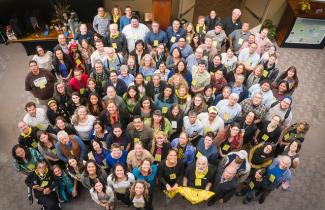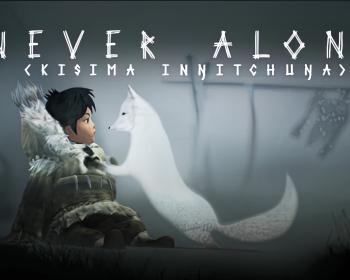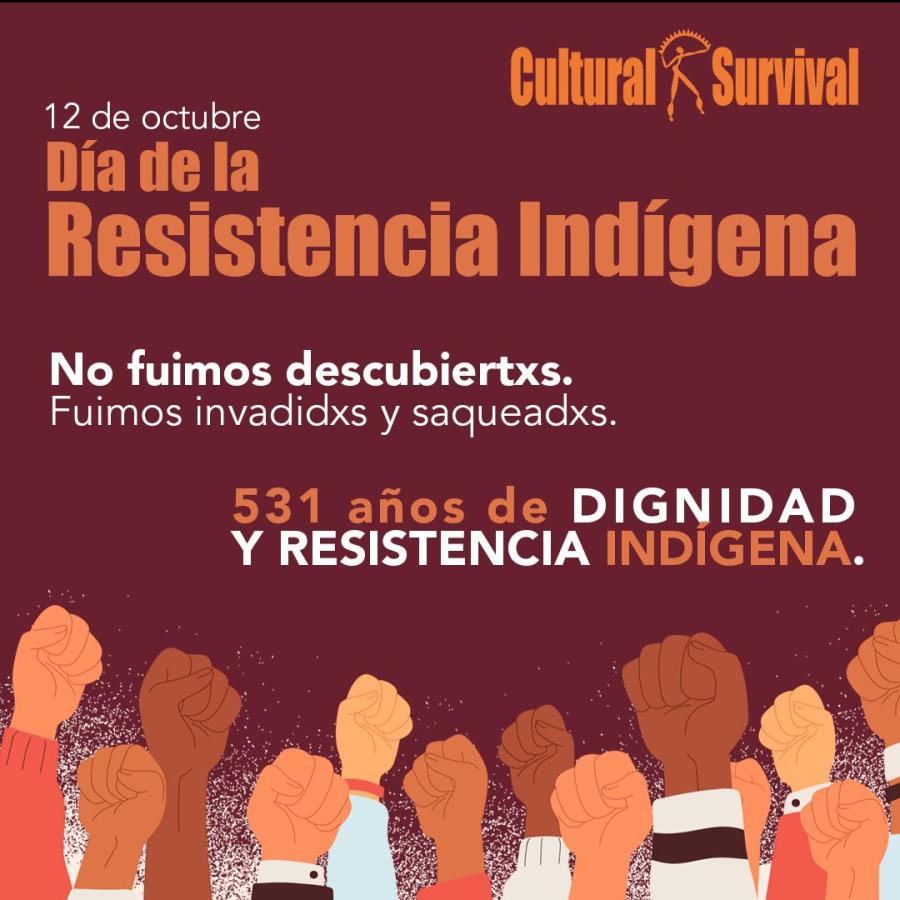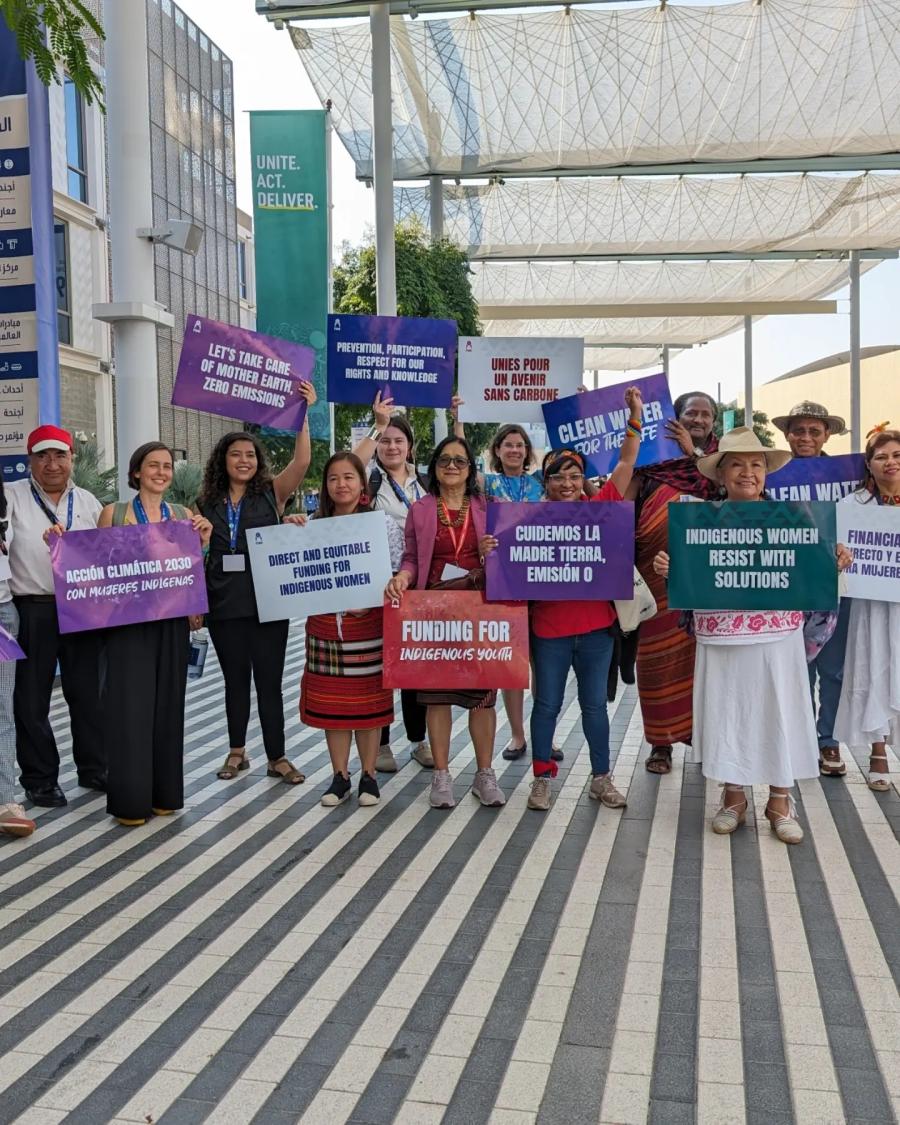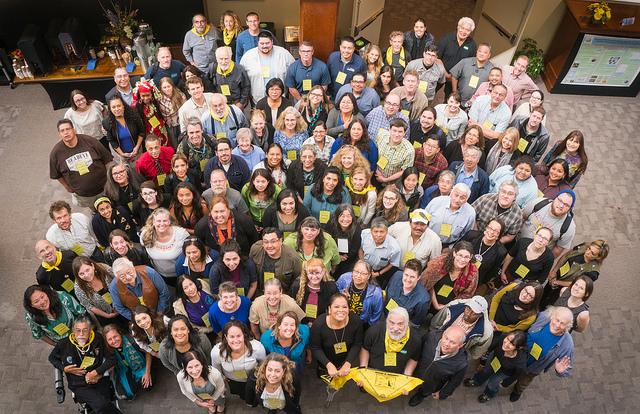
On April 13-15, 2017, Rising Voices 5 brought together Indigenous and western sciences in addressing climate change adaptation and mitigation. Over 140 participants from around the globe convened for dialogue and strategies for action.
The 5th annual workshop of Rising Voices: Collaborative Science with Indigenous Knowledge for Climate Solutions held at the National Center for Atmospheric Research in Boulder, Colorado was organized in partnership with Cultural Survival and the National Center for Atmospheric Research (NCAR). The event was a collaboration between the National Center for Atmospheric Research (NCAR), Cultural Survival, Livelihoods Knowledge Exchange Network (LiKEN) Inter-tribal Council on Utility Policy (ICOUP), Indigenous People’s Climate Change Working Group (IPCCWG), and the International Indian Treaty Council.
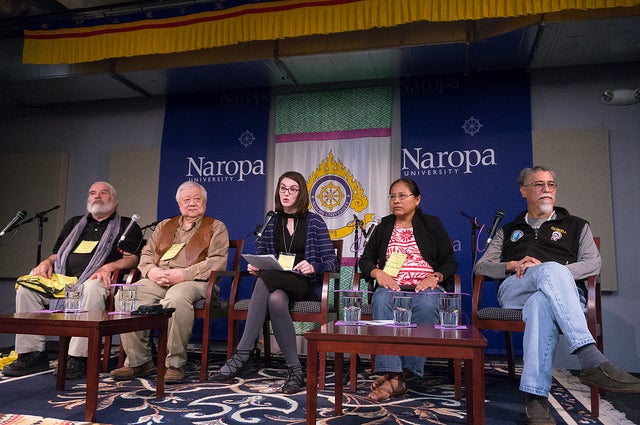
"Indigenous people have drawn on Indigenous knowledge and science for millennia to understand and respond to climate and environmental change they faced. This knowledge is deeply embedded in our worldviews and relationship with the natural world as well in our cultural practices. What is different and challenging today is the rate of climate change occurring made by man and our ability to respond to it. We must correct the path we are walking on and return to the special relationships, the teachings, the knowledge and practice that maintains respect, honor and relationship with the natural world," said Cultural Survival Executive Director Suzanne Benally (Navajo/Santa Clara Tewa).
The theme of the 5th Rising Voices workshop was “Pathways from Science to Action.” Through collaborative research presentations and group discussions, participants worked on developing specific pathways to move from science to action for climate adaptation at local, national, and international levels. Rising Voices seeks to diversify scientific research and solutions to weather and climate extremes that includes Indigenous science. The fifth workshop was an opportunity to address the climate change issues impacting Indigenous communities globally.
Indigenous Peoples’ relationships with the natural environment are very much rooted in sacred connections to land, water, plants, and animals. Tui Shortland from New Zealand said, “Our knowledge is based on not only on our own genealogical link to the environment, but also the environment as its own spiritual entity, with its own rights, and that needs to be respected. We look at a forest as a whole, as a whole living entity, in a holistic way.“
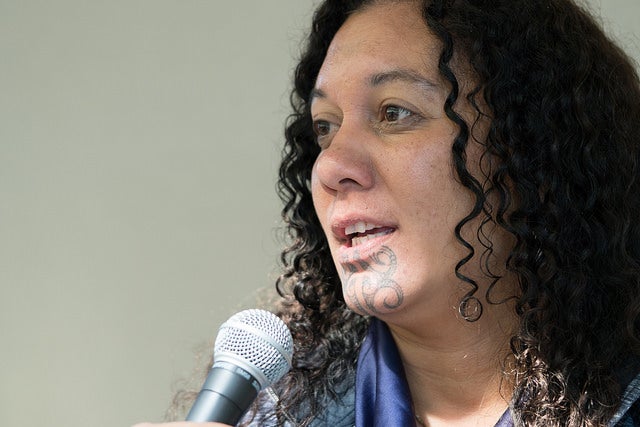
Presentations and discussions covered topics such as collaborative research; making links from local initiatives to international mobilization; the tensions and discrimination Indigenous science faces within the western science community; building collaborative knowledge about extreme weather, climate change, and disasters; and strategies for implementing knowledge into action and policy making.
Climate change affects us all but Indigenous women are at the frontlines of those impacted. “Women are very strong voices in the work for the protection of the environment. The knowledge of Indigenous women in particular as food producers, as knowledge holders, as the first teachers of the children, plays a very key and central role. The cultural practices and traditions that Indigenous women keep alive and pass down generation to generation in Indigenous communities is being recognized very strongly all the way to the United Nations, but also in Indigenous communities and the broader movements addressing climate change. The importance of that knowledge and that role, in not only addressing the adaptation and mitigation, but also confronting the solutions to climate change,” said Andrea Carmen (Yaqui), executive director of International Indian Treaty Council.
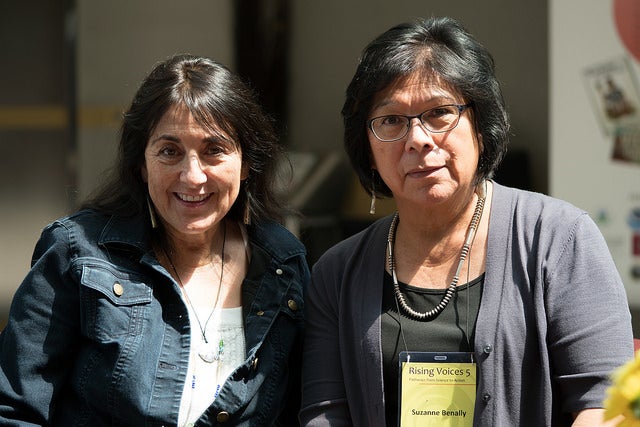
Attendees from all over the world shared their experiences about the links between their cultures and the environment. Hindou Oumarou Ibrahim, from a Mbororo pastoralist community of Chad, also spoke on the role of women in confronting climate change and also its greater impact on them. “Indigenous women are the most affected by the climate change firstly because they are the ones who are collecting food and water to feed their families and also their traditional medicine for the health of the communities. In my communities and in my regions, women have the knowledge of water protection and they also have the knowledge of food collection and of the land protections. [For example], through certain kind of trees that they have to harvest some times and in other seasons they have to feed these trees in order to get a good rainy season. Their roles are very important at the community level and also at the national level. The women of the communities understand climate change because they are seeing it through all the production that they’re having. In my peoples, because we are cattle herders, [the women] harvest milk. The women see during the dry season that the quantity of milk is reducing from one liter to becoming just one cup. They are not getting milk every day, [but rather] once every two days, and that’s affecting them.”
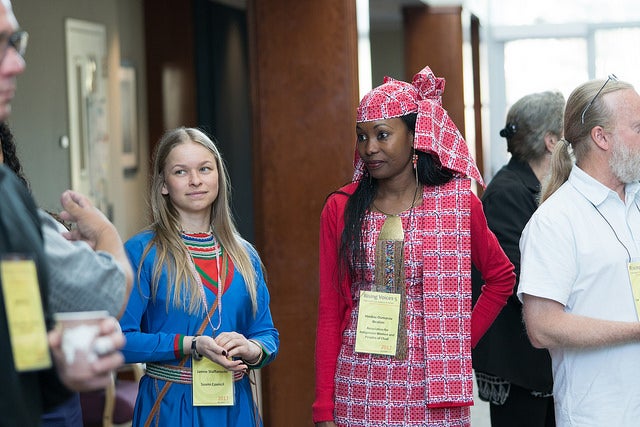
Kaimana Barcarse (Native Hawaiian) shared lessons about how the environment relates to language, “I always say, watch what you say, because you can never take it back, and that’s not just to people, that’s also to the environment. We can use that mana, which is that spiritual power, and we can use that olelo, which is our language, but we have to use it in the right way.”
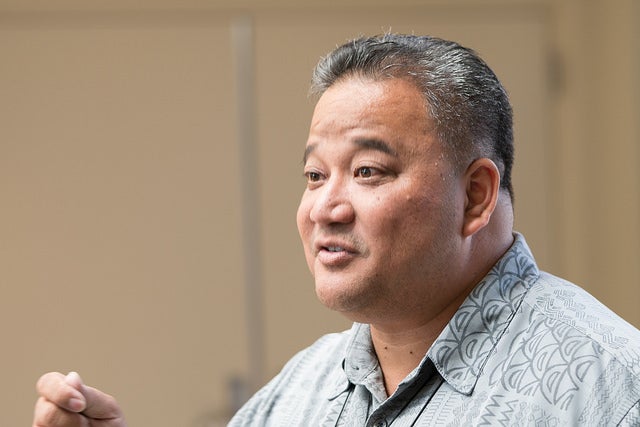
Interviews with participants will be available shortly through Cultural Survival’s Indigenous Rights Radio programs.
For information about Rising Voices, please visit the website (https://risingvoices.ucar.edu/) or contact: Heather Lazrus (hlazrus@ucar.edu); Julie Maldonado (jkmaldo@gmail.com); Bob Gough (gough.bob@gmail.com)
For information about Cultural Survival, please contact: Suzanne Benally (sbenally@cs,org); Danielle Deluca (danielle@cs.org)
